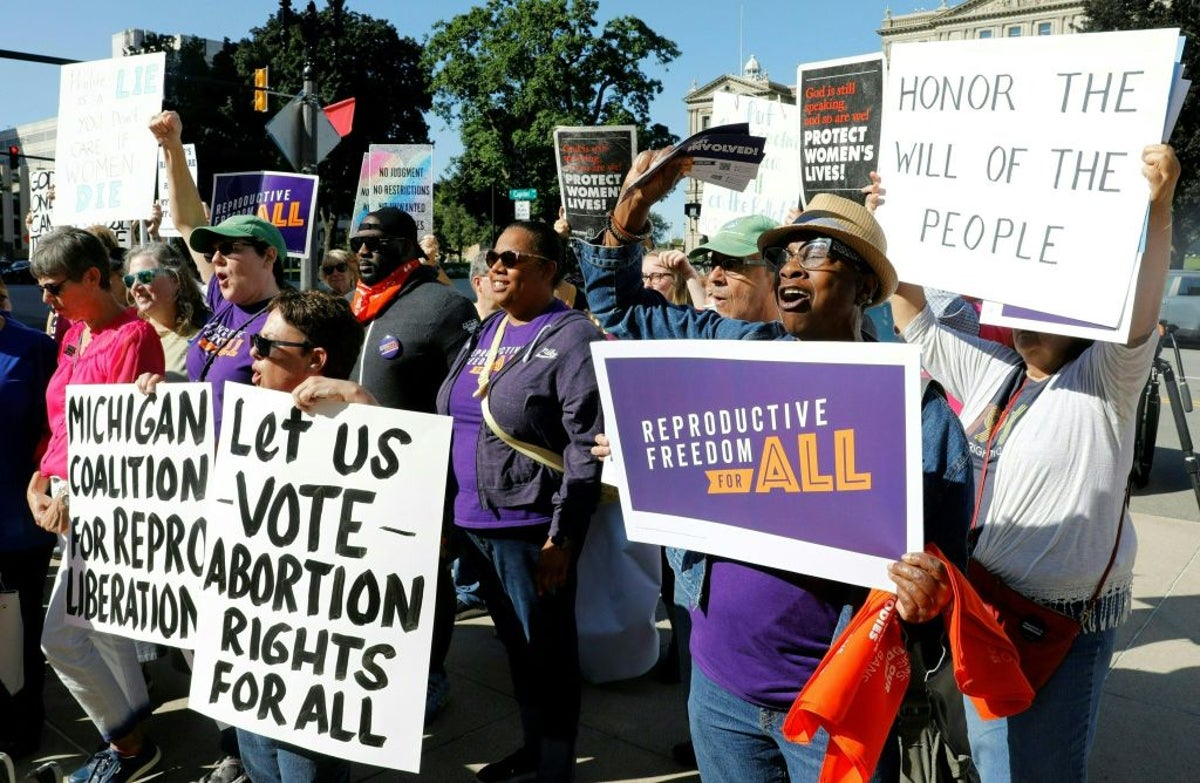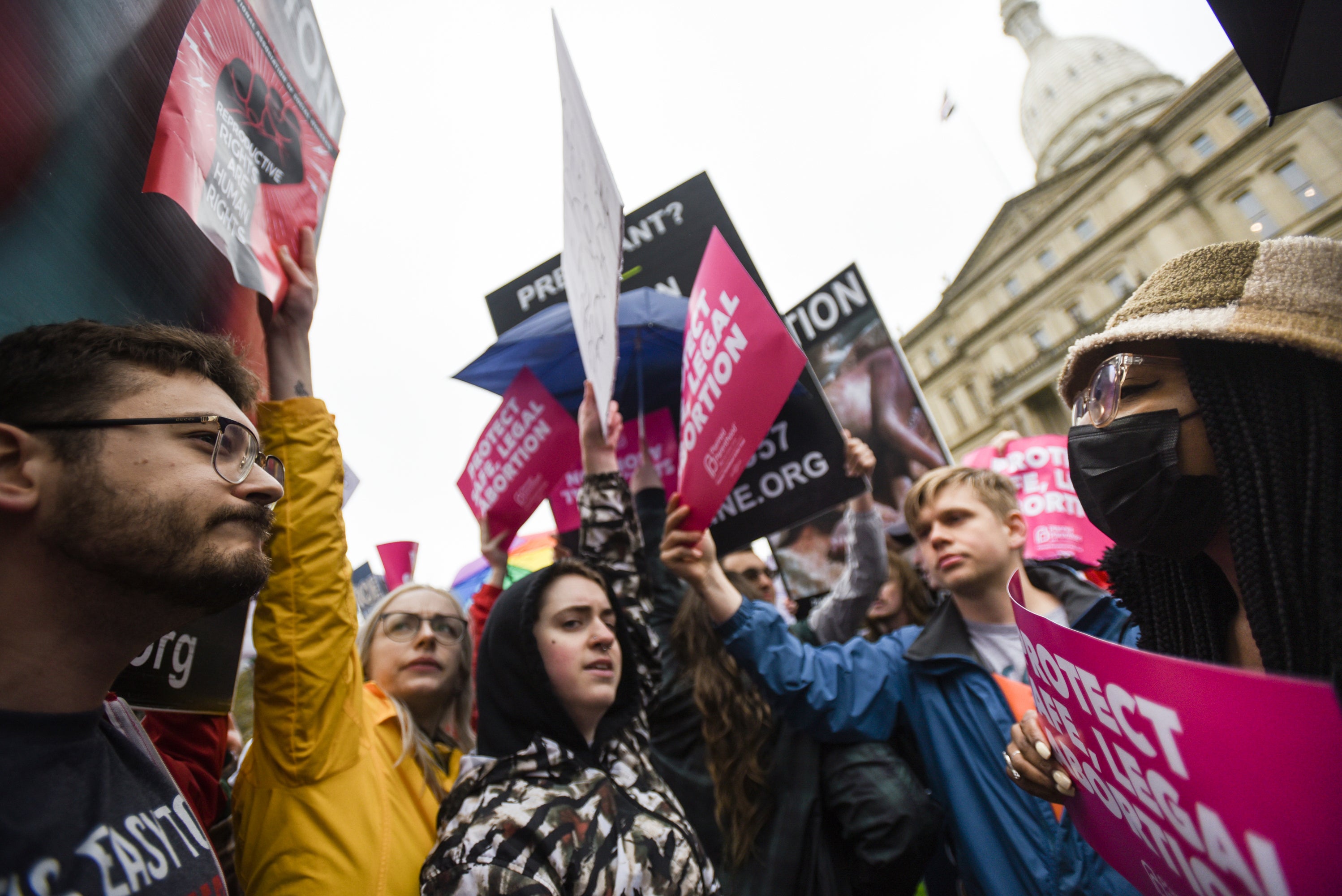
“Is the Dobbs effect fading?”
That was the question that Politico’s Playbook newsletter asked at the beginning of last week as Democrats and Republicans headed into the final stretch before next month’s crucial midterm elections.
If you ask pundits in Washington, the answer seems to be a resounding “yes”. Common assumptions in the DC political sphere, backed up by polling from legacy media outlets, argue that the twin issues of inflation and the economy as a whole will always take precedence over what many incorrectly dismiss as “culture war” issues like abortion rights.
But in Michigan, where activists have charted a path to inking abortion rights into law via a citizen-led ballot measure, the answer is very different. And it may be a lesson for Democrats and reproductive health care activists around the country for the years to come.
The state’s significance in the fight over abortion rights is high. Michigan is one of several jurisdictions that saw a so-called “trigger law” snap into effect following the Dobbs v Jackson Women’s Health Organization ruling in late June that overturned Roe.
The 1931 Michigan law bans all abortions in the state of Michigan except when necessary to save the life of the mother. A court has temporarily blocked that law, but that decision is being appealed by conservatives.
It may never go into effect at all. Voters in the state will have the option next month to vote “yes” or “no” on Proposal 3: A ballot measure that would enshrine a “fundamental right to reproductive freedom” for every Michigander in the state constitution. It’s a bold move that would nullify that 1931 trigger law while also staking out a defence against other conservative-led efforts to restrict or ban contraception use.
And that ballot measure is having a strong effect on voters. Abortion rights activists on the ground across Michigan say that far from “fading”, the Dobbs decision remains a strong motivating factor driving people to participate in this year’s midterms, thanks to what they say is a direct opportunity for those voters to express their defiance of the Supreme Court’s widely unpopular ruling.
“I think there’s nothing more motivating for people when it comes to voting or volunteering than standing up for their rights and their freedoms that should be protected,” said Julie Rowe, the political and organising director for Reproductive Freedom for All, a group based in the state working to build support for the ballot measure.
“Why is this issue resonating so much more strongly in Michigan than other places? Because we have a chance to get our rights back, to restore the protections of Roe,” she continued. “We have that opportunity in Michigan right now and people are taking it. They’re volunteering, and they are voting and they are doing so with intention and determination because of how important and fundamental this right is.”

Her fellow organiser with RFFA, Liz Buckner, agreed that the success of activists getting abortion on the ballot directly was something their cohorts in other states now hope to mimic in the future.
“Most states don’t have the ballot and that’s why people are looking to Michigan to see what we’re doing, why there’s so much interest in it,” Ms Buckner said.
Their assertions are backed up by hard data as well. A monthly Detroit News/WDIV-TV poll has shown abortion rights not just persisting as an important issue for voters but actually rising, to the point where it now ranks above the supposed “kitchen-table issues” of the economy and inflation. In July, shortly after the Dobbs decision dropped, just over 13 per cent of Michigan voters told pollsters that abortion rights was their most pressing concern heading into the midterms. By early October, in the same poll, abortion was now ranked as the “primary motivating factor behind Michigan voters’ desire to participate in the November election” – with 35.5 per cent of voters ranking it as their top issue driving their choices at the ballot box.
And most, if not all, seem confident that the polling isn’t telling the whole story anyway.
Just ask Tamika Middleton, managing director of the Women’s March, who noted a smattering of reporting in outlets like The New York Times and NPR about a surge of voter registrations post-Dobbs indicating that women will turn out this year in much higher numbers than usual.
“I mean, what we see even just in the … registration of new voters. It’s telling us that women will turn out in different numbers. We’re seeing higher numbers of women registering to vote, we see that not just nationally, but we also see that in specific states; I was just reading about that happening in Pennsylvania, that the way that their voter registrations are trending again, more and more women are registering to vote leading up into this election,” she told The Independent.
Crucially, the activists in Michigan were not caught flat-footed by the June SCOTUS decision to overturn Roe. Both Ms Buckner and Ms Rowe noted that some “really thoughtful and engaged” leaders on the issue had begun the process of collecting signatures and preparing the measure’s language months before the Dobbs ruling, giving them a chance to capitalise on the immediate anger this cycle. But activists in other states may be able to replicate that anger in the future, especially if the seemingly unending stream of horror stories regarding the implementation of state abortion bans around the country continues.
Many remain hopeful that Democrats will follow through on the pledge that Joe Biden and others have made on the campaign trail: To codify Roe nationally if they expand their majority in the Senate. Doing so would almost certainly require modifying or scrapping the filibuster; two Democratic senators, Joe Manchin and Kyrsten Sinema, have expressed opposition to doing so, meaning that two more Democratic votes are needed in the upper chamber for that path to be viable.
"Here's the promise I make to you and the American people: the first bill I will send to the Congress will be to codify Roe v Wade [if Democrats have majorities],” Mr Biden vowed this week during remarks in Washington DC.
Should their blue – or pink – wave materialise next month, what they will have effectively produced is a road map for left-leaning activists around the country and a rebuke to the national pundit class. Nothing is certain, but those who spoke about the issue in interviews with The Independent did so notably with both optimism and anger.
“I’m angry,” a frustrated Ms Buckner concluded her thoughts on the matter, explaining that her 28-year-old found her reactions at time too stressful to deal with. “This is not the way to do it. Don’t. Don’t take my rights away, and don’t tell me that I’m not capable of making decisions for myself.”
“This one is about rights, our human rights and nobody else’s. Nobody’s trying to take decisions away from men. It’s only about women.”







